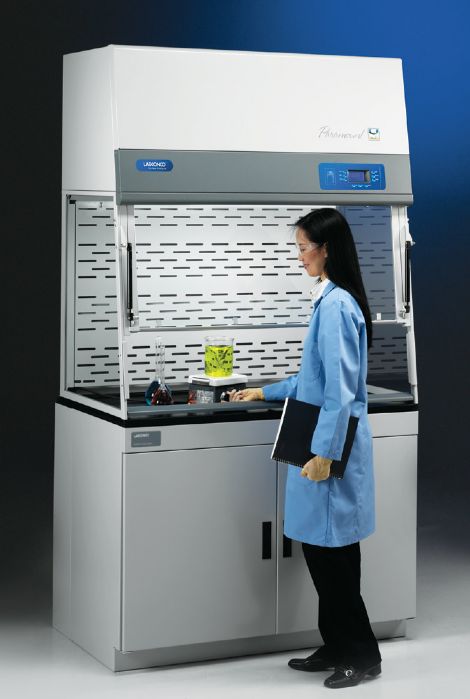5 advantages of going ductless
 There is a great deal of fear associated with making the leap from traditional ducted hoods to ductless; however, more laboratories are recognizing the benefits of going ductless.
There is a great deal of fear associated with making the leap from traditional ducted hoods to ductless; however, more laboratories are recognizing the benefits of going ductless.
Here are the five advantages that a ductless hood has over other enclosures:
- Flexibility: Ductless fume hoods are useful in hard-to-duct areas, such as the center or bottom levels of multi-level buildings.
- Turnkey Operation: Installation expenses are far less than traditional hoods; no ductwork and remote blower are required.
- Portability: Ductless hoods may be shared among several laboratories or stored when not in use.
- Sustainability: They have no make-up air requirements, allowing them to be used in air-starved labs or to offset air needs of ducted fume hoods.
- Green: Costly tempered air is not exhausted from the laboratory, resulting in lower energy costs.
These web services will help you to find the right enclosure for your specific application:
![]()
Let Scout™ lead you to the right Labconco enclosure for your application.
![]()
A Chemical Assessment Report can help you determine if a ductless enclosure is right for your application
Chemical Guide for Filtered Enclosures
Use this guide to determine the right Filtered Enclosure, filter type, and usage information for many chemicals.
DID YOU KNOW?
Under SEFA 9:2010 – Recommended Practices for Ductless Enclosures (Scientific Equipment and Furniture Association) there are three categories of “ductless hood” or DH?
DH I: A ductless hood equipped with a filtration device designed to control non-toxic chemicals, nuisance odors and particulates.
DH II: A ductless hood capable of meeting all DH I requirements, and equipped with a filtration device designed to filter manufacturer-approved toxic contaminants up to filter breakthrough only.
DH III: A ductless hood capable of meeting all DH II requirements, and equipped with a filtration device designed to filter manufacturer-approved toxic contaminants beyond primary filter breakthrough by providing secondary back-up protection.
| chevron_left | Sample prep: What to use & why to use it | Articles | Safety First: OSHA Lab Standards webinar | chevron_right |






